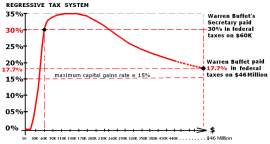
Facts about the Indian Income Tax Department

What is the Income Tax Department
The Income Tax Department is the governing body responsible for enforcing the income taxation model in India. The Income Tax Department is a part of the Ministry of Finance and is responsible for enforcing the tax slabs in the country.
The Income Tax Department upholds the Income-Tax Act of 1961, which establishes the rules and regulations necessary to enforce the income tax laws of India.
The Income Tax Department institutes a direct taxation to the population of India. Direct taxes are the primary source of revenues to the central government of India; the taxable revenue of India has grown at an average annual rate of 24% in the last five years. The Income Tax Department is responsible for building the nation through the implementation of the progressive tax policy.
The levy is and the revenue achieved through enforcement is delivered through a medium which aims to enable a policy environment and augmenting the revenue-generating apparatus for an optimum revenue collection, while maintaining taxpayer confidence in the overall system. In general, the Income Tax Department of India aims to formulate a progressive tax policy, while enforcing tax laws on its citizens with fairness.
Additionally, the Income Tax Department employs thousands of customer service agents who strive to deliver quality service and continuingly work to upgrade their skills in the hopes of building a polished and professional workforce.
Incomes taxes in India are collected based on the major tax enactment in India—the Income Tax Act of 1961. This act, which was passed by India’s parliament, imposes a levy on income of individuals and corporations. This Tax Act imposes a levy on the income for the following five heads: all income from house and property, all income generated from business and profession, income obtained through payments or salaries, income in the form of capital gains and income generated or obtained from other sources.
This Act; however, was repealed and replaced with a new act which consolidated the law relating to Income Tax and Wealth Tax. This new act, which is called the Direct Taxes Code, is set to take form on April 1 2011.
Based on the Income Tax Act of 1961, a tax on income is levied on corporations and individuals, the rate of taxes are prescribed each year by the Parliament in the Finance Act. The rate of tax for individuals is divided by the aforementioned categories and a surcharge of 2.50% of the total tax liability is applied in case the Payee is a Non-Resident or a Foreign Corporation, where the income exceeds Rs 10,000,000.
The Central Board of Direct Taxes, which is a subsidiary of the Income Tax Department, is the statutory authority functioning under the Central Board of Revenue.
NEXT: How to File Income Tax Documents





















